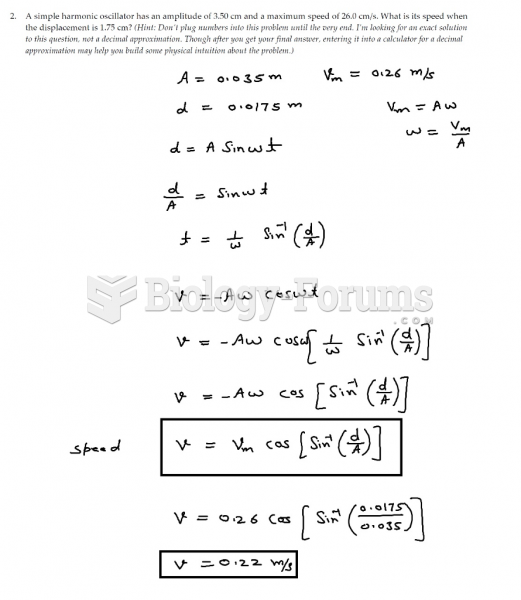This topic contains a solution. Click here to go to the answer
|
|
|
Did you know?
Multiple experimental evidences have confirmed that at the molecular level, cancer is caused by lesions in cellular DNA.
Did you know?
Women are 50% to 75% more likely than men to experience an adverse drug reaction.
Did you know?
There are 60,000 miles of blood vessels in every adult human.
Did you know?
To combat osteoporosis, changes in lifestyle and diet are recommended. At-risk patients should include 1,200 to 1,500 mg of calcium daily either via dietary means or with supplements.
Did you know?
Vaccines prevent between 2.5 and 4 million deaths every year.







